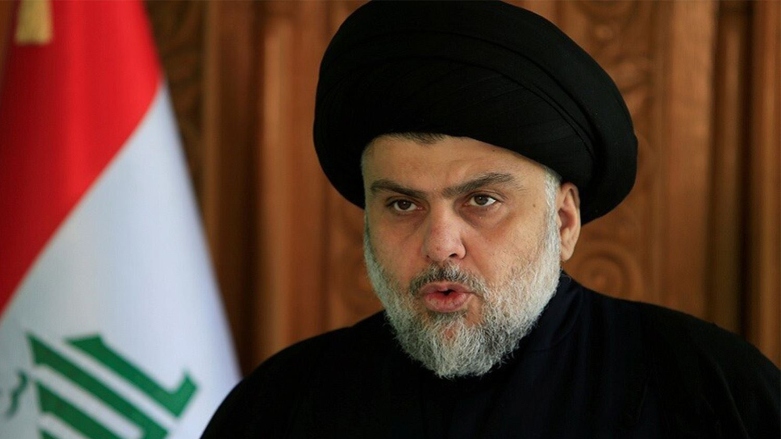Iraq's Muqtada al-Sadr outlines US policy
The US must deal with the Iraqi government with "reciprocity" and "diplomatically," said Sadr, whose political party came at the top of last week's Iraqi parliamentary elections.

ERBIL (Kurdistan 24) – Firebrand Shia cleric and self-styled populist leader Muqtada al-Sadr on Saturday outlined his political movement's policy regarding the US to relieve Iraq from "dependency" on foreign powers.
"Perhaps one of the most important things that the world is awaiting in the assuming the premiership by Sadrists is our position about (America) or the (Occupation)," Sadr said in a statement posted on social media.
The US must deal with the Iraqi government with "reciprocity" and "diplomatically," Sadr said. "In other words," it explained, as "a state dealing with a state with full sovereignty."
The Shia cleric, who led an insurgency against US forces after the ouster of former Iraqi dictator Saddam Hussein in 2003, added his movement would push for "serious and effective dialogue" regarding the future status of US forces in Iraq.
Related Article: US affirms broad support for Iraq in Strategic Dialogue, including continued fight against ISIS
Sadr also added that protests in Iraq are an "internal affair" that does not "concern" Washington and that should be free from "external influence."
The late 2019 protest movement, primarily in Shia-majority areas of Iraq against endemic corruption and an elite political class that has consistently put its interests ahead of those of the public, led to the resignation of then-Prime Minister Adil Abdul Mahdi.
This successor government of Mustafa al-Kadhimi facilitated early elections held on October 10, in which Sadr secured a decisive victory, taking nearly 20 seats more than the previous vote.
Whether his political movement would be able to form government remains in question, however, as he would need to lead a simple majority bloc in the legislature to succeed.
The Iraqi leader affirmed that he wants to distance Iraq from "regional conflicts," a reference to the tensions between the US and Iran that often play out in Iraq, as Tehran-aligned Iraqi militias target US troops in bases inside Iraq, and American forces retaliate.
Sadr has also called for bringing all militias under the control of the Iraqi state, in an apparent reference to Tehran-backed paramilitaries that often act with impunity, including the targeting of activists and protesters.
"We are Iraqis... We want [to] live in peace," the statement noted, adding that for anyone who "opposes that, we have an appropriate response."
"We will deal with" Washington "economically or on other levels, if the aforementioned points are achieved."
Economic cooperation has been one of the key points Washington and Baghdad officials have highlighted during US-Iraq Strategic Dialogue summits the two sides have held.
Related Article: US envoy visits Baghdad ahead of Kadhimi trip to Washington; Iraq says troop withdrawal discussed; US says no
Sadr added that if "the above points are not achieved," then it means that the US is a "hostile state to Iraq, and does not want its independence, sovereignty, and stability."
Then "Iraq and the occupation are foes" that cannot "coexist," the statement concluded.